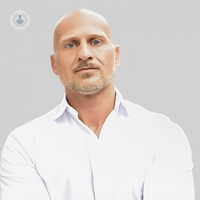Understanding and managing a blocked nose: Insights from a medical professional
Autore:A blocked nose, medically known as nasal congestion, is a common condition that can cause discomfort and difficulty breathing. In this article, Dr Fabio Fanfoni, a highly respected consultant ENT surgeon, explores the causes, remedies, treatment options, prevention strategies, and when it's necessary to seek medical attention for a blocked nose.

What are the causes of a blocked nose?
A blocked nose can be caused by various factors, including allergies, colds, sinus infections, nasal polyps, deviated septum, and environmental irritants like dust or smoke. Allergic rhinitis, triggered by allergens such as pollen or pet dander, is a frequent cause. Infections, such as the common cold, can also lead to nasal congestion due to inflammation and excess mucus production.
How can I relieve a blocked nose?
To alleviate a blocked nose, you can try several self-care measures. Nasal saline irrigation with a saline solution or using over-the-counter saline sprays can help moisturize and clear the nasal passages. Steam inhalation, warm compresses, and staying hydrated can also provide relief. Elevating your head while sleeping and using a humidifier to add moisture to the air may further alleviate symptoms.
When to seek medical attention for blocked nose?
If your blocked nose persists for more than a week, is accompanied by severe pain, or is accompanied by high fever, it may indicate a more serious condition requiring medical attention. Additionally, if you experience recurrent or chronic nasal congestion that significantly affects your quality of life, it's advisable to consult a healthcare professional for a proper diagnosis and appropriate treatment.
What are the treatment options for a blocked nose?
Treatment for nasal congestion depends on the underlying cause. Over-the-counter decongestant nasal sprays or oral medications can provide temporary relief, but prolonged use should be avoided to prevent rebound congestion. Antihistamines may be prescribed for allergies, while antibiotics are used to treat bacterial sinus infections. In some cases, surgical intervention may be necessary, such as for nasal polyps or a deviated septum, and would be determined by an ENT specialist.
How can I prevent a blocked nose?
To reduce the risk of a blocked nose, practice good hygiene, such as regular handwashing, to prevent the spread of infections. Avoid known allergens whenever possible, and consider using air purifiers to improve indoor air quality. Maintain a clean and dust-free environment. Additionally, staying hydrated and maintaining overall good health through a balanced diet and regular exercise can help support a healthy immune system.
While a blocked nose can be bothersome, it is often a temporary condition that can be managed with self-care measures. However, if symptoms persist or become severe, it's important to consult a healthcare professional for an accurate diagnosis and appropriate treatment.
To schedule a consultation with Dr Fanfoni, visit his Top Doctors profile today.


